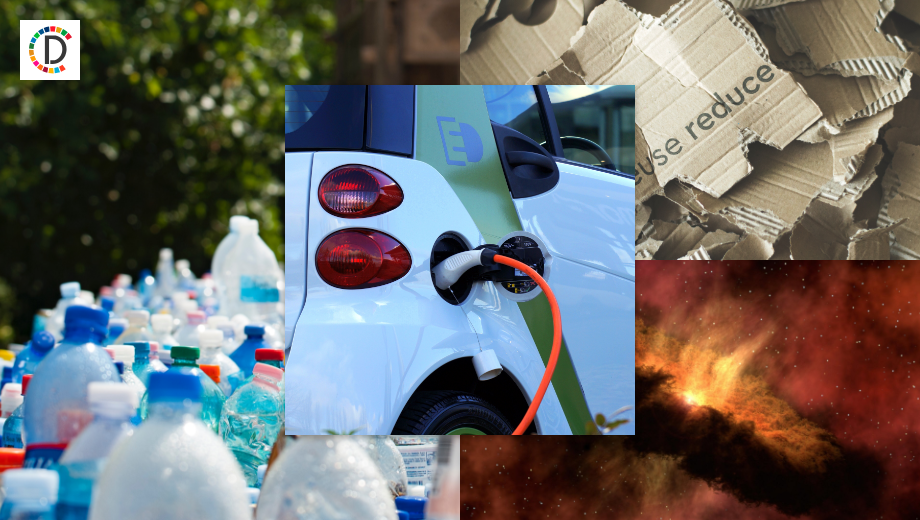Pro-nuclear countries pitch atomic role in Europe's green transition
Representing host nation France, which typically gets more than two-thirds of its power from nuclear generation, Energy Minister Agnes Pannier-Runacher said the pro-nuclear countries would probably reconvene next month. COMPETITIVENESS AND THE SOCIAL CONTRACT The European Union as a whole has about 100GW of installed nuclear capacity, producing roughly a quarter of EU electricity. A declaration signed by participants of Tuesday's summit estimated that if an additional 50GW of new nuclear projects come online by 2050 as planned, it would create more than 450,000 jobs and contribute 92 billion euros ($101.27 billion) to Europe's GDP.

Pro-nuclear countries made the case the energy form is central to Europe's transition to a low carbon economy on Tuesday, against a background of deep disagreement in the European Union over its role in meeting climate commitments. Long-standing divisions over nuclear energy in the 27-member bloc deepened this year after countries clashed over whether low carbon nuclear power should count towards renewable energy goals.
Tensions also flared between France, Spain and Germany - Europe's biggest energy consumer, which shut its last nuclear reactors last month - over whether planned infrastructure projects should be able to use nuclear power as an energy source. The 16 governments meeting in Paris urged the EU to use its energy policies, including green industrial subsidies, to support nuclear. Brussels has said only certain advanced nuclear technologies will receive EU incentives for green industries.
EU Energy Commissioner Kadri Simson told the meeting the EU budget is not allowed to be used for nuclear generation, but planned electricity market design reforms could in theory help the sector obtain outside financing more easily. She also said the European Commission will in early 2024 provide a study of European nuclear infrastructure and has asked countries to submit investment plans detailing their needs for new nuclear generation, including job requirements.
In addition to Simson, the meeting brought together representatives from 14 EU countries including Belgium and the Netherlands, plus Italy as an observer and the United Kingdom as a non-EU guest. Representing host nation France, which typically gets more than two-thirds of its power from nuclear generation, Energy Minister Agnes Pannier-Runacher said the pro-nuclear countries would probably reconvene next month.
COMPETITIVENESS AND THE SOCIAL CONTRACT The European Union as a whole has about 100GW of installed nuclear capacity, producing roughly a quarter of EU electricity.
A declaration signed by participants of Tuesday's summit estimated that if an additional 50GW of new nuclear projects come online by 2050 as planned, it would create more than 450,000 jobs and contribute 92 billion euros ($101.27 billion) to Europe's GDP. In addition, when accounting for the fossil fuel imports that would not be required, it would add 33 billion euros to the EU trade surplus.
Czech Energy and Industry Minister Jozef Sikela said the large amounts of CO2-free baseload electricity nuclear energy can provide are an affordable way to achieve decarbonisation while providing enough power for industry. "This is also about price and affordable energy for European households, which is extremely important for the social contract and for the competitiveness of European industry," he said.
But nuclear generation is not renewable, and relies on non-renewable fuel, which in many cases has been provided by Russia. Bulgarian Energy Minister Rosen Hristov said his country last year signed new contracts for nuclear fuel with France's Framatome and Canada's Westinghouse, enabling it to stop relying on Russia.
Nuclear power also produces radioactive waste, which anti-nuclear countries including Austria say should encourage governments to focus instead on renewable energy such as wind and solar, to cut CO2. Climate campaigners also say the focus should be on renewables.
"Every euro invested in new nuclear will not be invested in the energy transition," Greenpeace campaigner Pauline Boyer said at a protest outside Tuesday's meeting. "None of the new reactors announced by the French government will be ready before, at best, some 15 years, whereas the next decade will be crucial to get Europe on the right climate trajectory," she added.
($1 = 0.9084 euros)
(This story has not been edited by Devdiscourse staff and is auto-generated from a syndicated feed.)










